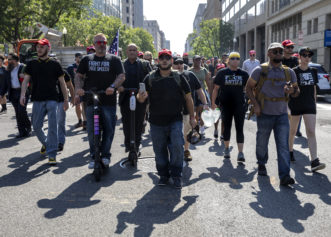
Black Lives Matter protesters in Manhattan
Social media giants Twitter, Facebook and Instagram have reportedly been collecting user access data and providing it to developers of a social media monitoring product marketed to law enforcement officials to track Black activists and demonstrators, according to the American Civil Liberties Union of California.
A press release issued by the non-profit organization Tuesday stated that it had obtained records showing that the social media sites provided user data to Geofeedia, a Chicago-based tech startup specializing in location-based intelligence software.
Since putting the popular social networking sites on blast, ACLU of California confirmed that Instagram had cut Geofeedia’s access to its public user posts, while Facebook ceased access to its topic-based feed of public user posts. Twitter soon followed suit.
Based on information in the @ACLU’s report, we are immediately suspending @Geofeedia’s commercial access to Twitter data.
— Global Government Affairs (@GlobalAffairs) October 11, 2016
“Further steps are required if these companies are to live up to their principles and policies by protecting users of all backgrounds engaging in political and social discourse,” the ACLU’s report read. “So today the ACLU of California, the Center for Media Justice, and Color of Change are calling on Twitter, Facebook and Instagram to commit to concrete changes to better protect users going forward.”
In a pair of detailed letters addressed to the social media giants, ACLU of California urged the companies to specifically prohibit data access to developers of surveillance tools; create transparent public policies that explicitly prohibit surveillance developers from accessing user data; and ensure robust oversight of said surveillance platforms.
“We know that Twitter has strong commitments to supporting activists and people of color and making sure that the platform can be used safely by all people to connect and communicate about important social and political issues,” one of the letters read.
“Twitter also has a longstanding policy prohibiting the sale of user data for surveillance and a developer policy that specifically bans the use of Twitter data ‘to investigate, track or surveil Twitter users,’ ” it continued, suggesting that the social media site was in violation of its own privacy policies.
According to the ALCU of California, the organization first learned of the agreements between the social networks and Geofeedia through public records requests to 63 California law enforcement agencies. In several e-mails, Geofeedia representatives were seen bragging to law enforcement officials about the company’s special access to Twitter and Facebook user data.
“We pay for Twitters Firehose, which allows [us] to gather more complete data and quicker,” one of the e-mails read. “We are [also] the only social media monitoring tool to have a partnership with Instagram.”
The e-mail went on to tout the platform’s Geofeed Streamer, which representatives called “unique” and useful for tracking protests like the ones “we covered [in] Ferguson/Mike Brown nationally with great success.”
ACLU of California voiced concern over social media surveillance platforms like Geofeedia’s seemingly effortless access to user data, arguing that such software is a perfect example of how technology can disproportionately impact communities of color. They asserted that the software also made it easier for law enforcement to monitor social media activity and hashtags used by prominent Black activists and allies. In fact, the organization said it has knowledge of police departments in Oakland and Denver that use Geofeedia to surveil protests.
“Facebook and especially Twitter have built their brands on the backs of Black users,” said Brandi Collins, campaign director for Color of Change. “CEOs Mark Zuckerberg and Jack Dorsey have openly courted activists and organizations in the Movement for Black Lives to engage with their platforms. This makes each of their involvement with social media surveillance tools used against Black activists all the more disturbing.”
“While we’re glad both companies have cut off Geofeedia’s access to user data, both of these companies only did so after these secret deals were made public,” she added. “Both companies need to immediately develop publicly accessible policies that prevent these types of harmful deals from happening again in the future.”


